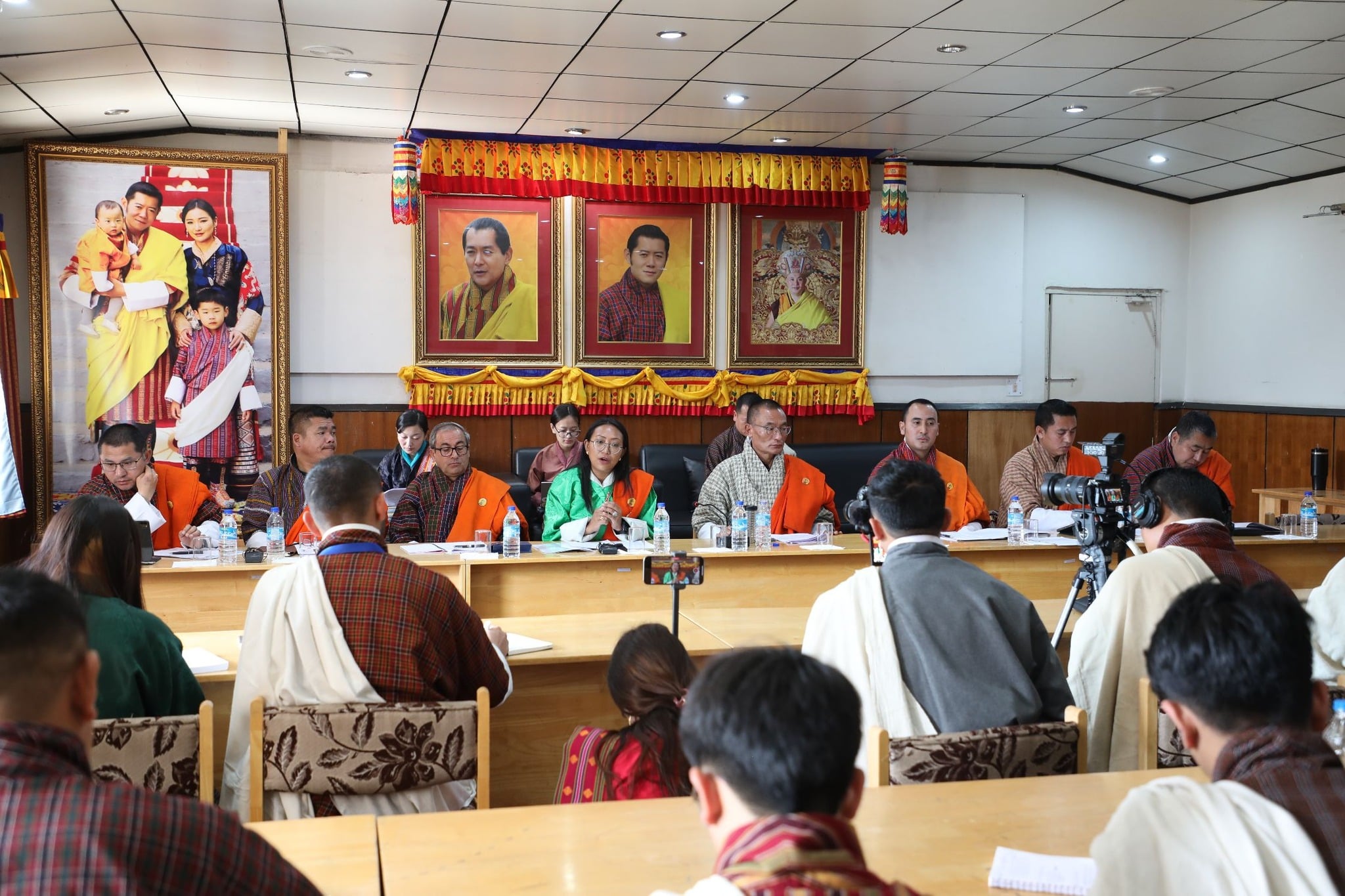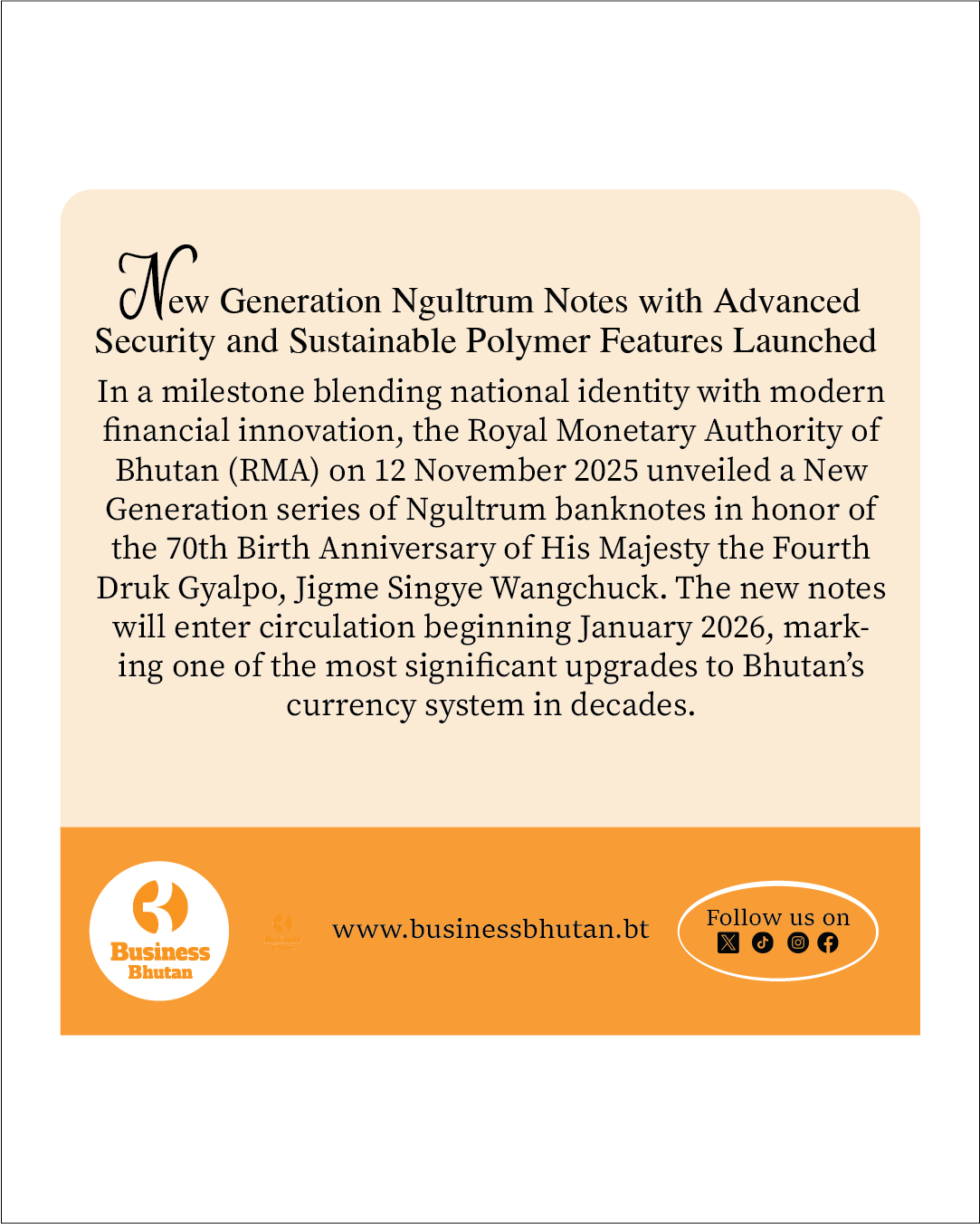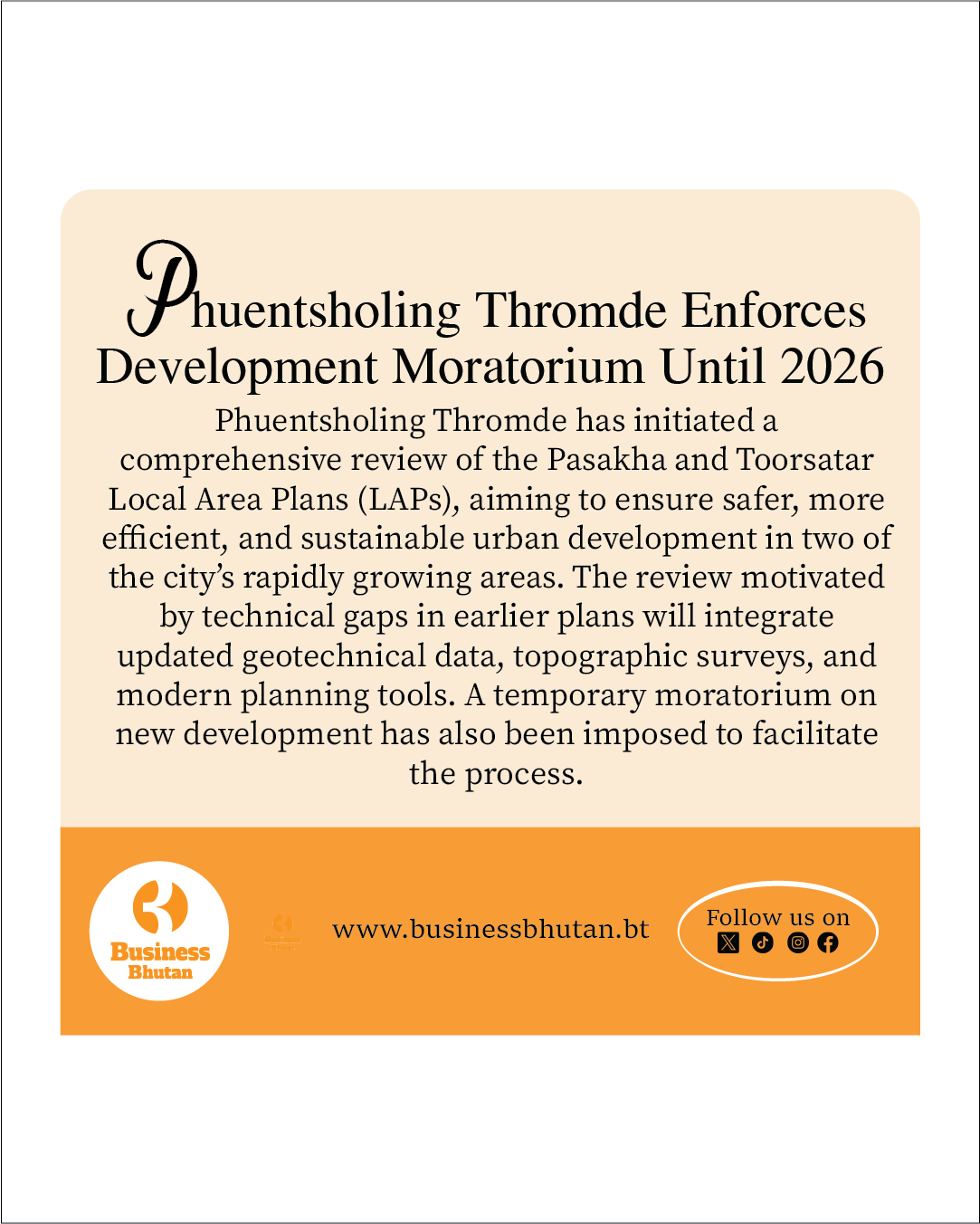Bhutan is setting an ambitious goal of achieving a USD 5 billion (B) economy by 2029, marking a significant shift from its traditional reliance on hydropower to a more diversified, private sector-driven, and Foreign Direct Investment (FDI)-supported economic model.
During the 13th Meet the Press on March 4, 2025, Lyonpo Namgyal Dorji, Minister of Industry, Commerce, and Employment (MoICE), said this transition will require strategic investments, policy reforms, and strong governance to position Bhutan as a high-income Gross National Happiness (GNH) economy. The goal is to foster sustainable prosperity and self-reliance for its citizens.
“The target of doubling Bhutan’s Gross Domestic Product (GDP) from USD 2.5B to USD 5B is ambitious but achievable,” the Minister stated. “FDI and private sector development will play pivotal roles in driving this economic expansion.”
“Diversifying Bhutan’s economy by strengthening the private sector and attracting strategic FDI is essential for achieving sustained and inclusive economic growth,” he said.
The Minister further emphasized the role of the private sector as the engine of growth, highlighting that Bhutan is prioritizing its expansion.
“Currently, the private sector contributes nearly 50% of Bhutan’s Gross Value Added (GVA), with medium and large industries accounting for 46%, while cottage and small industries contribute 3.96%. To further expand its role in GDP growth, Bhutan is committed to fostering a more business-friendly environment,” he added.
Additionally, the Minister stated that Bhutan is prioritizing business-friendly reforms to foster a world-class investment climate. These efforts include streamlining regulations, introducing tax incentives, and establishing a one-stop service center to facilitate investment processes, making it easier for both domestic and foreign investors to operate in the country.
“By enhancing productivity and competitiveness, the private sector will drive job creation, improve industrial output, and generate new economic opportunities, significantly contributing to GDP expansion,” the Minister stated. This approach underscores the government’s commitment to empowering businesses, fostering innovation, and positioning Bhutan as a competitive player in regional and global markets.
FDI as a Catalyst for Economic Transformation
FDI injects capital, technology, and expertise into Bhutan’s economy, helping diversify beyond hydropower into manufacturing, digital services, tourism, agribusiness, and finance. The Ministry emphasizes FDI-driven infrastructure projects like industrial parks and logistics hubs to boost trade and connectivity. Additionally, FDI fosters knowledge transfer, innovation, and sectoral growth, positioning Bhutan as a regional hub and strengthening its economic resilience.
Additionally, the Ministry stated that FDI-driven initiatives will enhance infrastructure development, including the establishment of industrial parks, dry ports, and logistics hubs. These developments will boost trade, improve connectivity, and create an enabling environment for businesses to thrive. Furthermore, FDI will support knowledge transfer and innovation, equipping Bhutanese industries with cutting-edge skills and expertise, thereby positioning the country as a hub for emerging industries in South Asia.
Beyond Hydropower: A Multi-Sector Approach to GDP Growth
While hydropower remains the backbone of Bhutan’s economy, its growth is limited by long gestation periods, high capital requirements, and environmental concerns. Recognizing these challenges, Bhutan is adopting a multi-sectoral approach to broaden its economic base and ensure sustainable growth.
One key area of focus is tourism revitalization. The government aims to develop high-value, low-impact tourism by enhancing infrastructure and services to attract high-spending visitors. By investing in sustainable tourism development, Bhutan seeks to generate revenue, create employment opportunities, and preserve its unique cultural and natural heritage.
Apart from hydropower, the Minister highlighted that agriculture and agribusiness are also being prioritized. By supporting modern farming techniques and value-added agricultural industries, Bhutan aims to transform its agricultural sector into a driver of economic growth.
Meanwhile, the Ministry is also emphasizing the digital economy and innovation as key growth engines. Efforts are underway to expand ICT services, support startups, develop fintech solutions, and promote digital trade, positioning Bhutan as a regional leader in knowledge-based industries. By leveraging technology and fostering a digital ecosystem, Bhutan seeks to enhance productivity, create new business opportunities, and integrate into the global digital economy.
Sherab Dorji from Thimphu
















